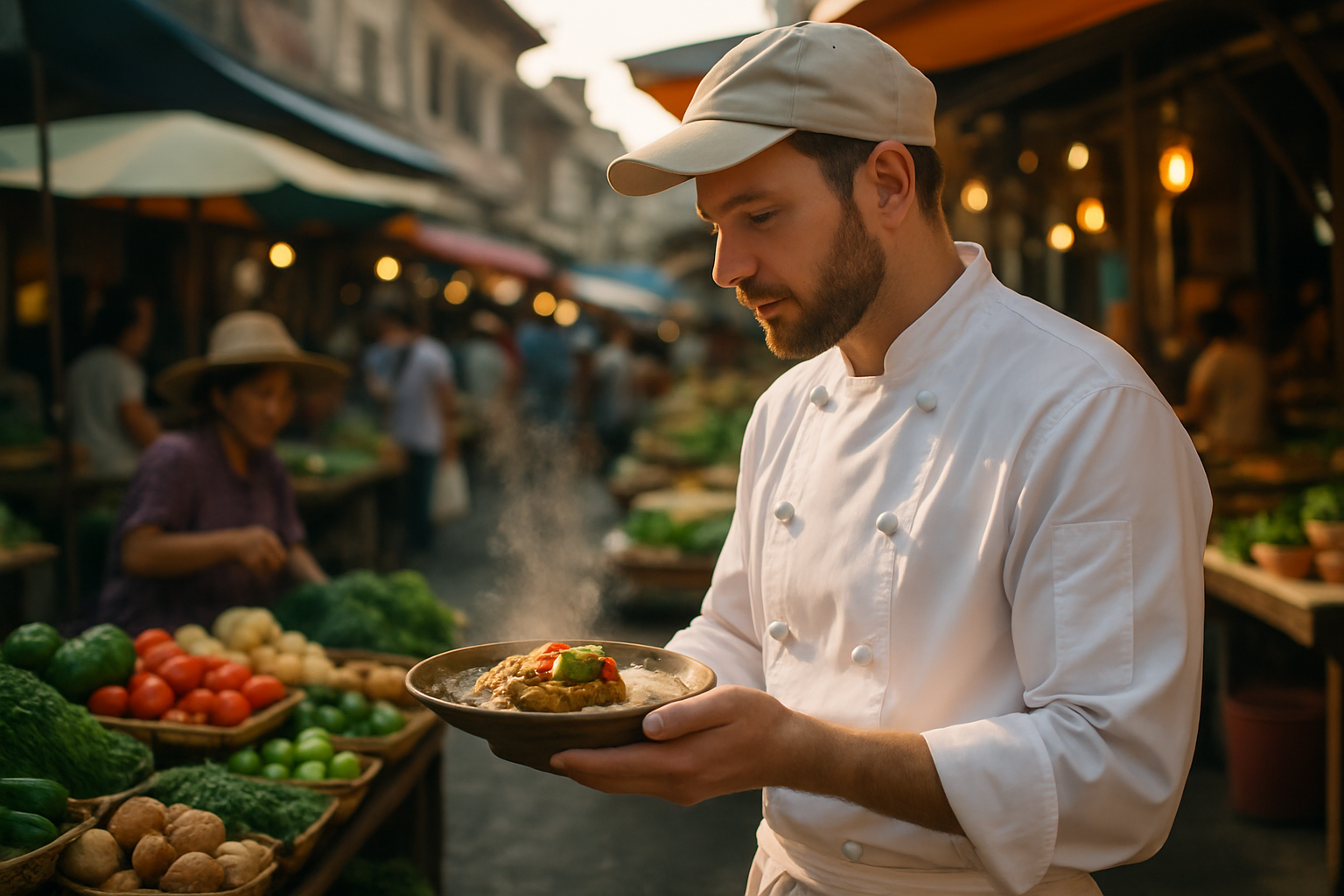Navigating the World of Culinary Passport Travel
The concept of culinary passport travel is taking the world by storm, offering food enthusiasts a unique way to explore global cultures through their taste buds. This innovative approach to travel combines the thrill of discovering new destinations with the joy of savoring authentic local cuisines. As travelers seek more immersive and meaningful experiences, culinary passport journeys are emerging as a flavorful way to connect with diverse cultures and create lasting memories.

Travel shows featuring celebrity chefs exploring global cuisines played a crucial role in popularizing this trend. These programs not only showcased exotic dishes but also highlighted the cultural significance of food in different societies. This sparked a growing interest among viewers to embark on their own gastronomic adventures.
The Modern Culinary Passport Experience
Today, culinary passport travel has evolved into a sophisticated niche within the tourism industry. It goes beyond simply tasting local dishes; it involves immersing oneself in the entire food culture of a destination. This can include visiting local markets, participating in cooking classes, meeting food artisans, and even helping with harvests.
Travel companies now offer specialized culinary tours that take food enthusiasts on carefully curated journeys through multiple countries or regions. These tours often focus on specific themes, such as exploring the spice routes of Asia or tracing the origins of coffee across South America.
The Impact on Local Communities
One of the most significant aspects of culinary passport travel is its positive impact on local communities. By focusing on authentic, local food experiences, this type of travel often benefits small-scale producers and family-run establishments. It helps preserve traditional culinary practices and supports sustainable tourism initiatives.
In many cases, culinary passport travelers actively seek out lesser-known destinations, bringing economic benefits to areas that might otherwise be overlooked by mainstream tourism. This has led to the revitalization of certain regional cuisines and the preservation of culinary heritage in various parts of the world.
Challenges and Considerations
While culinary passport travel offers numerous benefits, it also comes with its own set of challenges. Food safety is a primary concern, especially when exploring street food or rural cuisines. Travelers must be mindful of hygiene standards and potential allergies or dietary restrictions.
Another challenge is the risk of over-tourism in popular culinary destinations. As certain locations gain fame for their food scenes, they may face issues like overcrowding and cultural commodification. Responsible culinary passport travel requires a balance between exploration and preservation.
The Future of Culinary Passport Travel
As we look to the future, culinary passport travel is set to become even more sophisticated and technology-driven. Virtual reality experiences might allow travelers to preview culinary destinations before visiting. Artificial intelligence could help create personalized food itineraries based on individual preferences and dietary needs.
Sustainability will likely play an increasingly important role, with a focus on farm-to-table experiences and zero-waste culinary tours. We may also see a rise in fusion culinary passports, where travelers explore the intersection of different food cultures and their global influences.
Flavor-Packed Travel Tips
-
Research local food etiquette before your trip to avoid cultural faux pas
-
Learn basic food-related phrases in the local language to enhance your dining experiences
-
Pack digestive aids and any necessary medications for potential food-related issues
-
Consider booking accommodations with kitchen facilities to try cooking local ingredients yourself
-
Document your culinary journey through photos or a food diary for lasting memories
Culinary passport travel offers a unique and flavorful way to explore the world, connecting travelers with local cultures through the universal language of food. As this trend continues to evolve, it promises to create more meaningful travel experiences, support local communities, and preserve culinary traditions around the globe. Whether you’re a seasoned foodie or a curious traveler, embarking on a culinary passport journey can open up a world of flavors and cultural insights, making every meal an adventure in itself.





